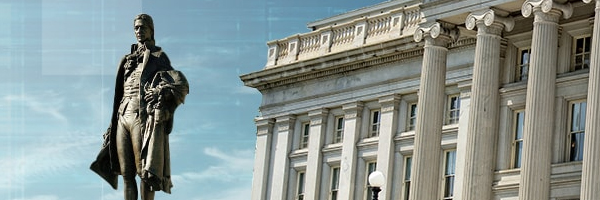
A Primer on Central Bank Digital Currencies
Event Details:
Fiscal Service has invited two speakers from MIT to provide an introduction to Central Bank Digital Currencies – what they are, how they are being used, and why there is a growing international interest in them.
Designed as a primer for government employees at Treasury, this talk will serve as a foundation for more upcoming CBDC events and discussions. This event is open to government employees only. A summary of the presentation and speaker bios are available below.
Presentation Summary:
What are Central Bank Digital Currencies (CBDCs)? How are they different from the digital money we use every day? What problems can they solve and what new risks do they present? Our speakers’ discussion will explore how different countries are implementing CBDCs, drawing on their experience working with central banks around the world. CBDCs can take many different forms and they will explain how policy objectives can guide the design of a CBDC. They will share ongoing work on how these designs can aim to facilitate trade, contribute to financial stability, combat money laundering, and promote financial inclusion.
Speaker Bios:
Professor Alex 'Sandy' Pentland directs Massachusetts Institute of Technology (MIT) Connection Science, an MIT-wide initiative, and previously helped create and direct the MIT Media Lab and the Media Lab Asia in India. He is one of the most-cited-computational scientists in the world, and Forbes declared him one of the "7 most powerful data scientists in the world". He is an advisor to the United Nations and Organization for Economic Cooperation and Development, and previously to Google, AT&T, and American Bar Association. He has received numerous awards and prizes such as the McKinsey Award from Harvard Business Review, the 40th Anniversary of the Internet from the Defense Advanced Research Projects Agency, and the Brandeis Award for work in privacy. Recent invited keynotes include annual meetings of OECD, G20, World Bank, and JP Morgan.
Robert Mahari is pursuing a joint JD/PhD degree at Harvard Law School and the MIT Media Lab’s Human Dynamics Group. His work focuses particularly on how computational legal systems can increase the efficiency of legal processes and promote access to justice. To this end, Robert leverages tools from machine learning, game theory and network science to research and prototype computational legal solutions in collaboration with private and public entities around the world.
Federal Government Employees
Online
Thursday, January 27, 2022 | 2:00 p.m. - 3:00 p.m. ET
Free
Hosted by:
Financial Innovation and Transformation
Point of Contact:
For questions, please contact: FIT@fiscal.treasury.gov
To register, please use the form below
Registration Form
Fields marked with an asterisk(*) are required.


